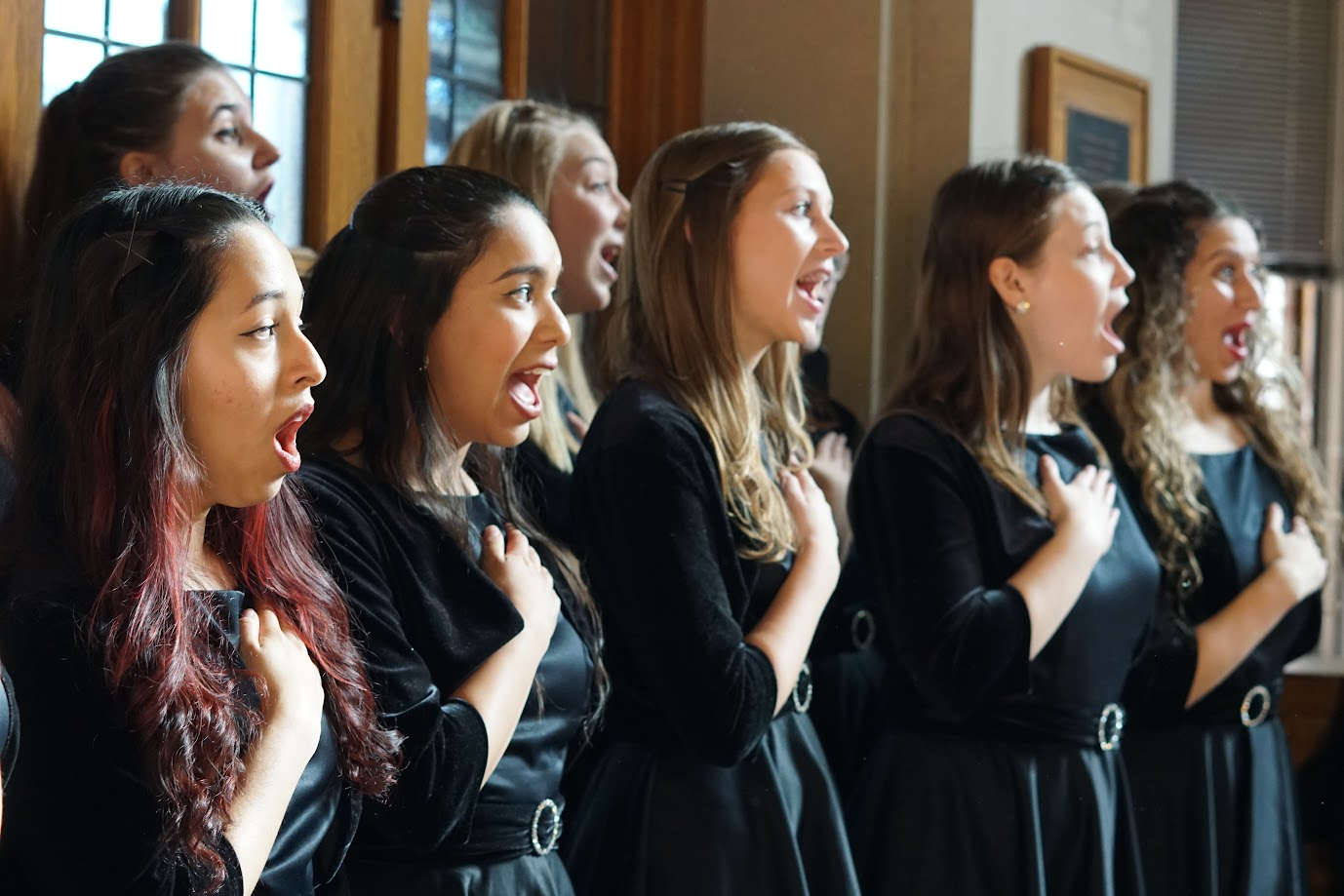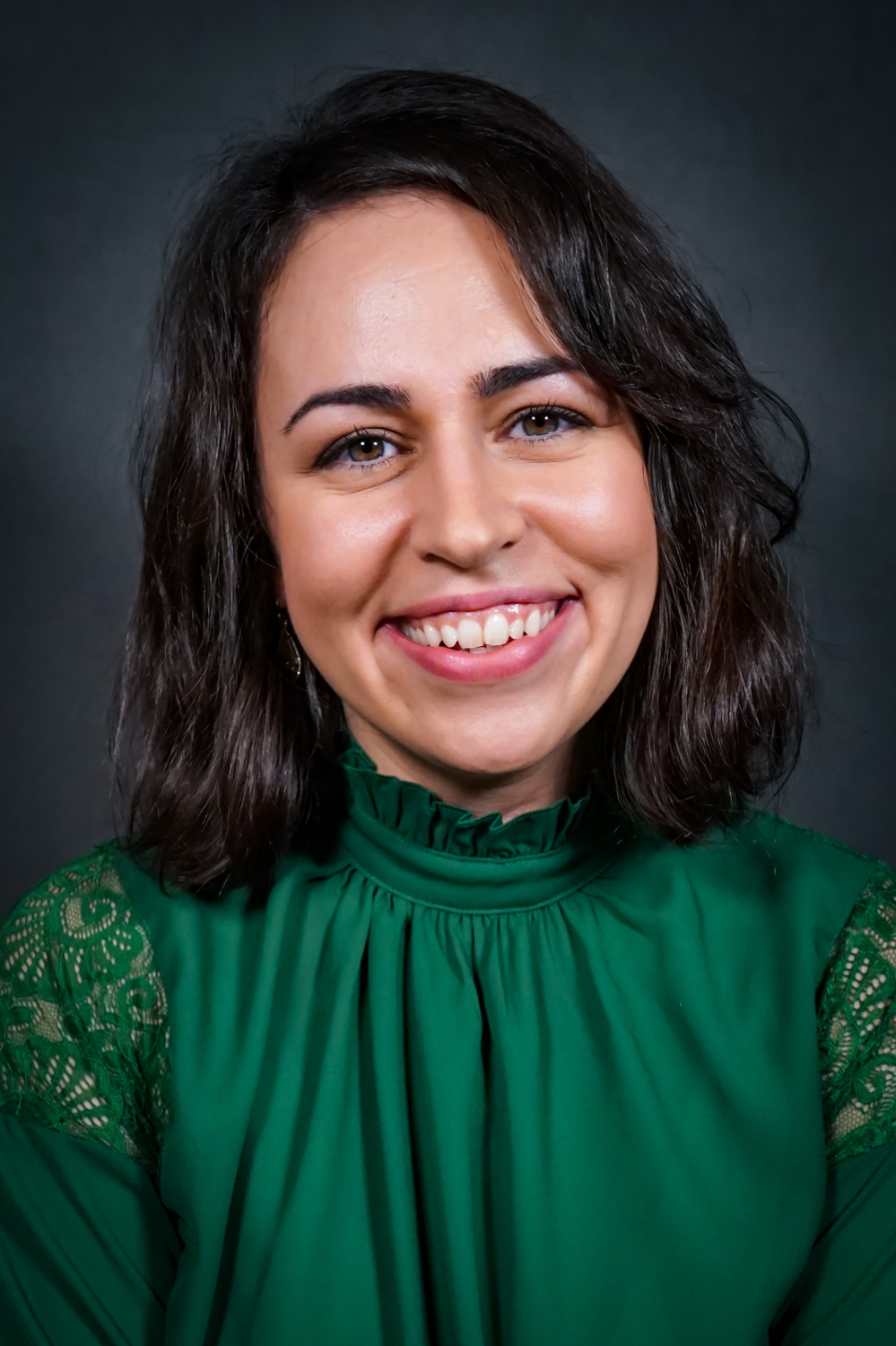While nearly a century has passed since Dorothy Stratton served as the first full-time dean of women at Purdue, her trailblazing efforts continue to inspire.
Morgan Gamble, director of the newly renamed Dorothy Stratton Veteran and Military Success Center (VMSC), said Stratton embodies the values the VMSC seeks to uphold and its mission to create an inclusive and welcoming space for all military-connected students.
“Our military-connected students represent a variety of cultures, backgrounds and walks of life, which is why representing their diversity is so important,” Gamble shared during a renaming and dedication ceremony on Nov. 10 in the Great Hall of the Purdue Memorial Union. “In dedicating our office to Dorothy Stratton, we recognize her leadership. We uplift her story. And we celebrate her impact, both within our nation’s history and our campus’s legacy.”

In Stratton’s nine years as dean of women at Purdue, she saw enrollment of female students nearly triple from 500 to more than 1,400, largely due to Stratton’s recruiting efforts.
“To be a woman in the 1930s exploring curriculum outside of home economics under ‘experimental circumstances’ and serving as the first full-time dean of women couldn’t have been easy,” Gamble mused. “I personally look up to Dorothy. She absolutely operated outside the box and with such mindful thinking.”
In 1942, Stratton left Purdue to join the burgeoning war effort as the United States entered World War II. She was commissioned as a senior lieutenant in the U.S. Navy but later was transferred to the U.S. Coast Guard. Not long after, Stratton founded the Coast Guard’s Women’s Reserve and became its first director. She climbed in rank to lieutenant commander and then to commander in January 1944, then to captain one month later.
Stratton also coined the nautical title SPAR, as the Women’s Reserve was commonly known — an acronym from the first letters of the Coast Guard’s famous fighting motto “Semper Paratus” and its English translation “Always Ready.”
A table of remembrance dedicated to MIA and POW military members stands in the PMU Great Hall during the Veterans Day program
Purdue President Mung Chiang, who gave remarks during the Nov. 10 dedication ceremony and the Veterans Day program that preceded it, said Stratton was a trailblazer in all possible ways.
“When I think of Purdue servicemembers, I think of individuals like Captain Stratton, who had such a major impact on our campus as well as within the defense of our nation,” Chiang shared. “On campus today, we serve over 2,000 students who are connected with the service and who sacrifice so much to safeguard our democracy. We also recognize that there are a number of staff and faculty who served honorably and without hesitation. I appreciate their service to our country and am honored to take this time to recognize their sacrifices and commitment to the United States.”
Creating a More Inclusive Space for Purdue's Military-connected Students
In addition to incorporating Stratton’s name in the center’s title, the VMSC’s new name features the word “military” to better reflect all the students the center serves and supports.
“I was in the military and greatly needed the camaraderie, support and assistance that comes from the Veterans Success Center. But I often opted out of the opportunities and resources that were available through this office because at that time I was not a veteran. I now know that this was not a unique experience, but an experience shared by other students as well,” Gamble said during her speech. “But I was invited in and ultimately got very engaged. While adding the word ‘military’ is a small change, I believe it will have a massive impact on our ability to reach out and support more students on Purdue’s campus.”

The Veterans Day event featured performances from the esteemed 'Purduettes,' a student musical group directed by Jeff Vallier
Also in attendance was Vice Admiral Kevin Lunday, who serves as commander of the Atlantic Area and commander to the Coast Guard Defense Forces East and director of the Department of Homeland Security Joint Task Force East.
“Today, only about 7% of American adults are veterans, but sometimes the various statistics don’t tell the full story,” Lunday shared during his remarks. “For every veteran in the United States today, there are many more who are family members of veterans or close friends or co-workers. In that way, the fabric that connects our larger American society to veterans is significant. It’s extensive, and it’s strong. It truly is an essential part of the enduring strength of this nation and how we connect with one another.”
To learn more about the Dorothy Stratton Veteran and Military Success Center and Stratton’s legacy at Purdue, please visit purdue.edu/veterans.

Andrea Mattingly
Director of Communication for Teaching and Learning, andrea@purdue.edu

